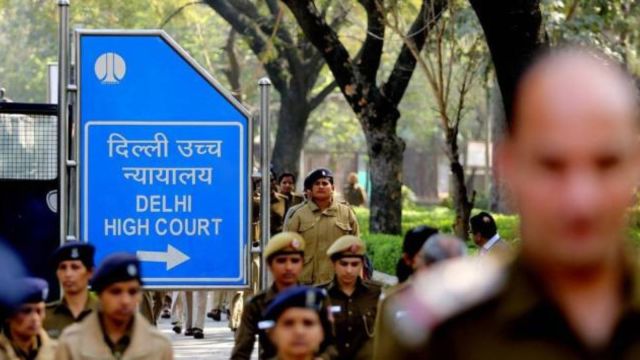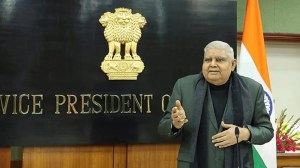‘Mustn’t resort to vague and stereotyped approach’: Delhi High Court dismisses close to 300 Defence Ministry pleas against disabled soldiers
The Ministry of Defence had filed nearly 300 writ petitions against disabled officers and soldiers, praying that the AFT's grant of pension to them be set aside.
 The Delhi High Court ruled Tuesday the grant of disability pension to soldiers is not “an act of generosity", but a "rightful and just acknowledgement of the sacrifices” during their military service. (File photo)
The Delhi High Court ruled Tuesday the grant of disability pension to soldiers is not “an act of generosity", but a "rightful and just acknowledgement of the sacrifices” during their military service. (File photo)The Delhi High Court ruled Tuesday the grant of disability pension to soldiers is not “an act of generosity”, but a “rightful and just acknowledgement of the sacrifices” during their military service as it rapped defence authorities for challenging the allowance to such armed forces personnel, who were earlier granted relief by the Armed Forces Tribunal (AFT).
The Ministry of Defence (MoD) had filed nearly 300 writ petitions against disabled officers and soldiers, praying that the AFT’s grant of pension to them be set aside, as their disabilities were not caused by service conditions.
Rejecting the arguments and dismissing the pleas of the authorities, a division bench of the HC comprising Justice Shalinder Kaur and Justice Navin Chawla held that as per rules interpreted by the Supreme Court, soldiers cannot be asked to prove their disability claims and a benefit of doubt is extended to them unless it is shown by cogent reasons by the medical board that the disability existed before entering service and had no connection with military service.
In the order dated, the bench observed that grant of disability benefits “is not an act of generosity, but a rightful and just acknowledgement of the sacrifices in the form of disabilities/disorders suffered during the course of their military service and a measure that upholds the State’s responsibility towards its soldiers, who have served the nation with courage and devotion.”
The order noted that even in peace stations, military service is inherently stressful due to a combination of factors, including strict discipline, long working hours, limited personal freedom, and constant readiness for deployment. “The psychological burden of being away from family, living in isolated or challenging environments, and coping with the uncertainty of sudden transfers or duties adds to this strain. Additionally, the toll of continuous combat training further contributes to mental fatigue,” the bench said.
The bench said that despite the absence of active conflict or the challenges of hard area postings, the demanding nature of military life at peace stations can significantly impact the overall well-being of personnel.
“Undisputedly, even when not on the front lines or in hard areas, soldiers are aware that the threat is never far away. This environment, where danger is a constant reality for their peers and could become their own at any moment, creates a persistent state of mental and emotional strain that cannot be overlooked. Thus, military service, whether in peace locations or operational zones, inherently carries stress that may predispose force personnel to medical conditions such as hypertension,” the bench noted in its order.
Commenting on lifestyle diseases, the bench said lifestyle varies from individual to individual. “Therefore, a mere statement that a disease is a lifestyle disorder cannot be a sufficient reason to deny the grant of Disability Pension, unless the Medical Board has duly examined and recorded particulars relevant to the individual concerned,” the Delhi High Court bench said.
“Disability pension cannot be denied solely on the ground that the onset of the disability occurred while the Force personnel were posted at Peace Station. Furthermore, it is evident that when Force personnel have rendered prolonged military service, there exists a substantial onus on the RMB [Review Medical Board] to establish that the hypertension is not attributable to or aggravated by military service,” it added.
The bench said it is disheartening that members of the armed forces are being denied disability pension solely on the aforementioned ground and that it overlooks the continuous physical and mental stress faced by soldiers, regardless of their location. The bench added that in certain areas, the “limits of man’s survival are tested, where again surviving each day is a challenge, away from the luxury of family life and comforts.”
“….the RMB must not resort to a vague and stereotyped approach but should engage in a comprehensive, logical, and rational analysis of the service and medical records of the personnel, and must record well-reasoned findings while discharging the onus placed upon it,” the bench said.
In the past months, hundreds of writ petitions and appeals filed by the defence ministry have been dismissed by the Supreme Court and various high courts with sharp observations and heavy fines. The defence ministry had withdrawn all such litigation from 2017 onwards, but it again filed litigation against disabled soldiers and widows when strict action was directed by the AFT against some officers for non-implementation of judicial orders in 2023.
Sources say legal advisors encouraged the defence ministry to challenge all orders in the top court and all high courts, rather than implementing orders as had been done in the past.
In 2015, the then Defence Minister had admonished his officers not to make litigation against soldiers a “prestige issue”. In 2017, the Supreme Court issued strictures against the MoD for flooding the courts with appeals in settled matters. In 2022, the Supreme Court recorded its “displeasure” against the MoD for its litigation on disability pension, a sentiment repeated by the top court in 2024 and 2025.












